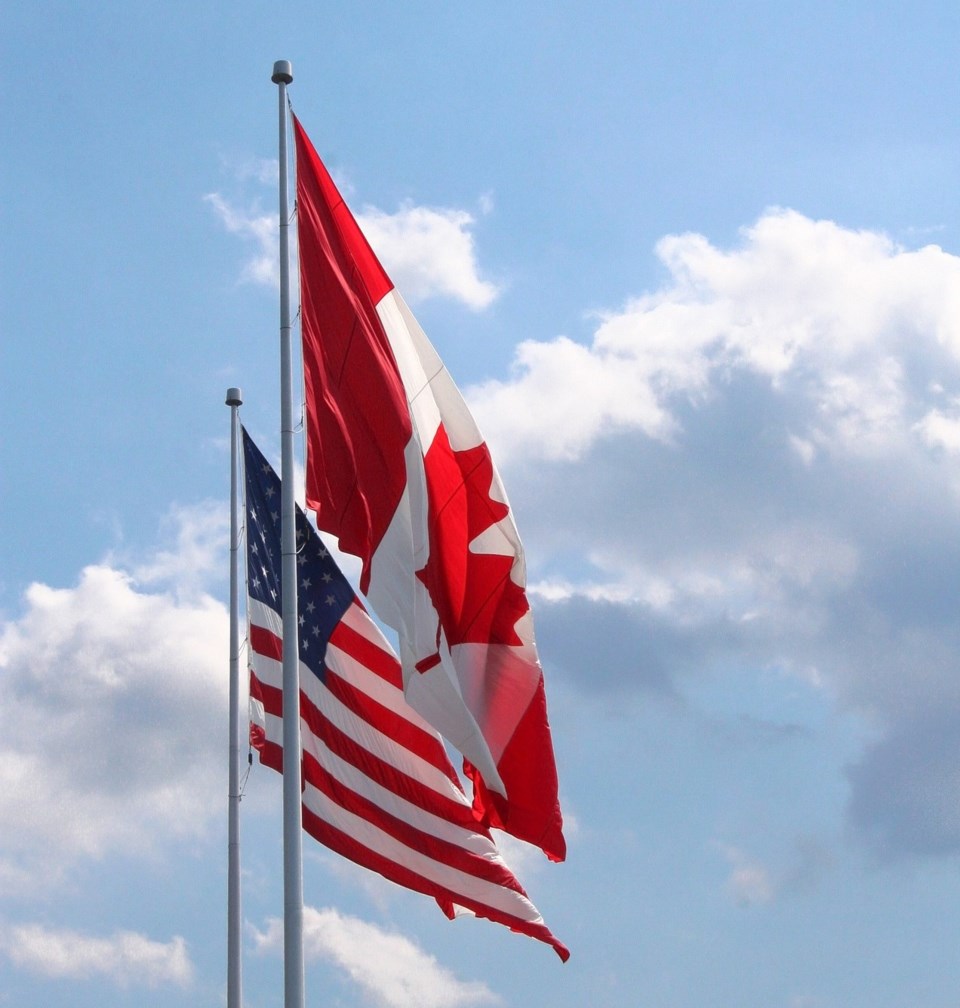Some Canadians may be surprised to learn they can still fly to the U.S. – despite the months-long closure of the Canada-U.S. border and the large number of COVID-19 cases in the United States.
That closure, recently extended to July 21, is a shared agreement by Canada and the U.S. and restricts non-essential traffic, meaning only people making essential trips can cross the border, for example, for work or transporting goods.
However, the closure only applies to the land border, and Canadians wishing to travel to the U.S. can still enter the country via air.
While Canada currently restricts all foreigners from entering the country for non-essential reasons – with the exception of immediate family members – the U.S. only prohibits visitors from certain countries, and that list doesn’t include Canada.
Also, while anyone entering Canada needs to self-isolate for 14 days under the Quarantine Act, that may not be the case in the U.S, depending on which state people are travelling to.
The US Centers for Disease Control and Prevention recommends international travellers arriving in the U.S. self-isolate, but that measure appears to only be a requirement if mandated by a state or local government.
For example, there are no enforced travel restrictions in Oregon, and the state’s borders and airports are open, according to the Travel Oregon website, which also notes that there are no mandatory quarantine periods in place for visitors.
While Canada has issued a global travel advisory, warning against all non-essential travel outside of the country and to avoid all cruise ship travel, Global Affairs says the decision to travel “is the sole responsibility of the individual.”
Some Americans can travel to Canada
Ottawa slightly eased Canada’s border restrictions June 9. Under the new rules, foreigners who are an immediate family member of a Canadian citizen or permanent resident are allowed to enter Canada.
Those new rules also apply to the Canada-U.S. land border.
Concern about ‘Alaska loophole’
Americans are also allowed across the land boarder if they can prove they are just passing through Canada to travel home to Alaska. However, this has become known as the so-called “Alaska loophole,” where U.S. travellers use that pretext for travelling within Canada.
“We’re concerned about this phenomenon and we’re hearing about it in communities across the province,” said B.C. Premier John Horgan during a press conference Thursday (July 2).
For example, Horgan said he’s heard of Texas and California license plates being spotted at a general store in Port Renfrew.
“If you’re heading to Alaska, you don’t go through Port Renfrew.”
Horgan said he has raised the issue with Deputy Prime Minister Chrystia Freeland and confirmed he would like to see the border remain closed for the time being.
“For 15 weeks I have maintained, and others have supported me across the country, that our border needs to remain closed until the United States demonstrates that they have a handle on this pandemic,” he said.
“And we’re going to be very clear on that right up to the next (border agreement) deadline…I can’t see our position changing based on the evidence south of us at this point in time.”
US COVID cases rise
The U.S. has seen a spike in COVID-19 cases in recent days.
New cases reported July 1 and July 2 both number over 50,000, according to a tally by Johns Hopkins University. Previous days saw cases numbering around 40,000.
That spike has caused at least 19 states to pause or roll back their plans to reopen. For example, California has closed all indoor establishments for at least three weeks, while New York City will not allow indoor dining to resume, as originally planned, next week.
As of 2 p.m. Friday (July 3), the U.S. has over 2.8 million cases of COVID-19, and 131,997 people have died from the virus.



